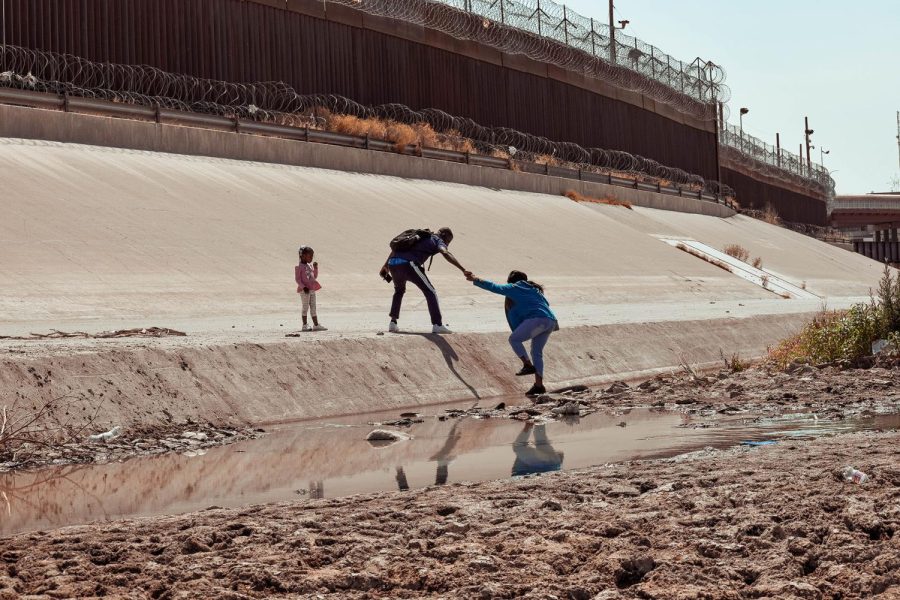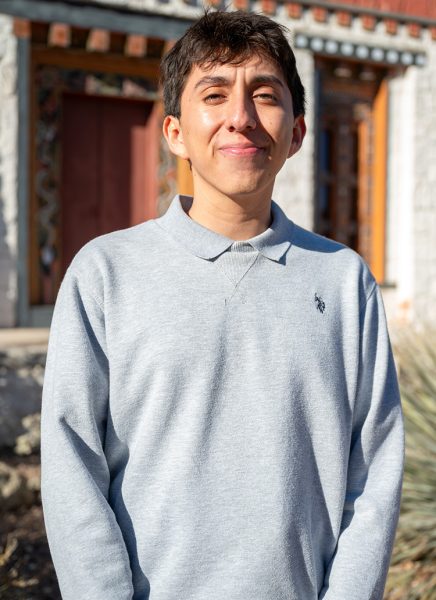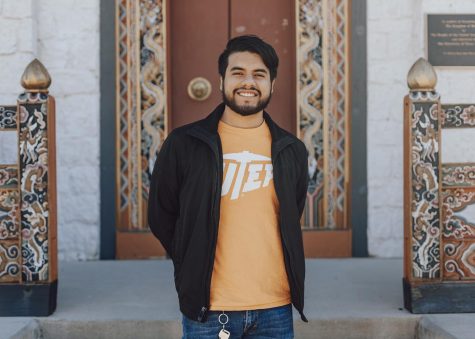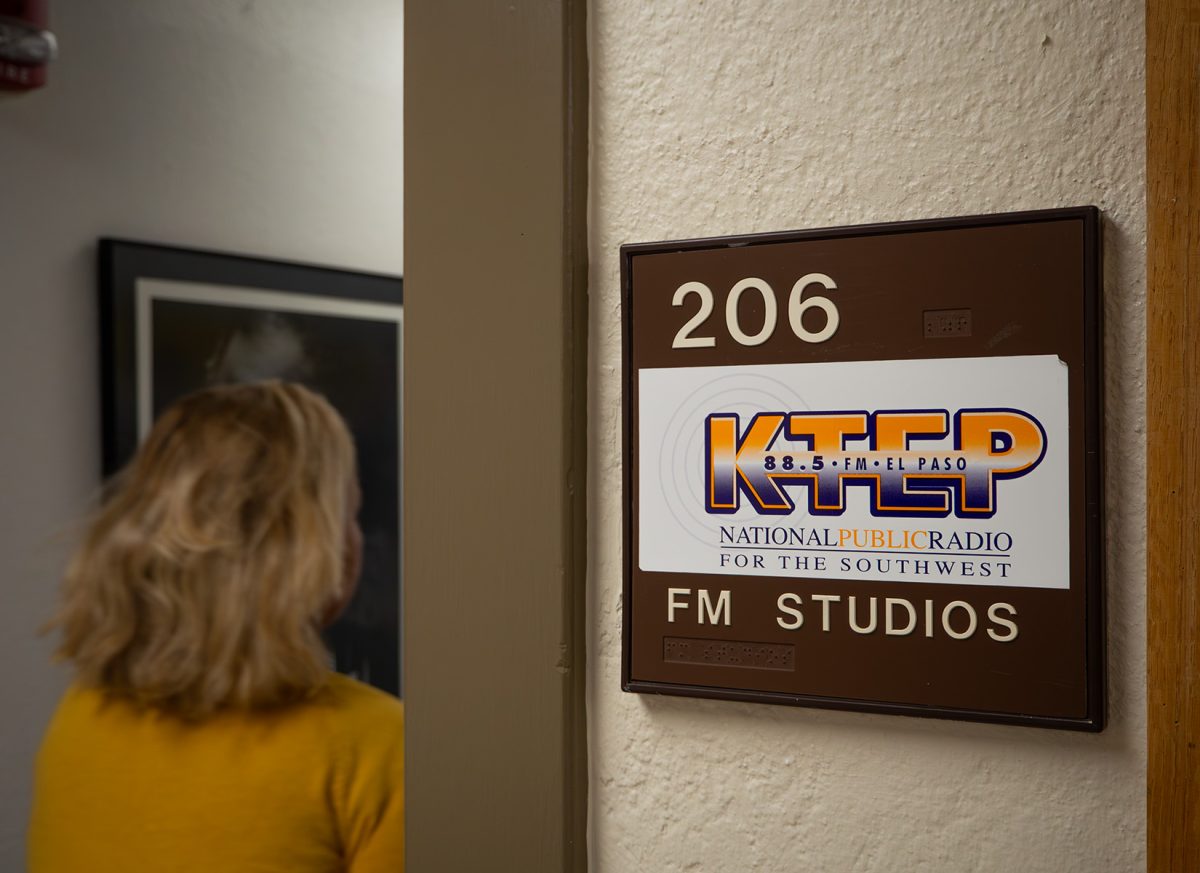Within the past few months, the city of El Paso has been experiencing a significant migration influx. Historical numbers of migrants have crossed the southwest border with no place to go, generating a humanitarian crisis and a debate over border control security and Title 42.
The Trump-era public health policy, Title 42, was first implemented in 2020 to expel asylum seekers from the country and was due to expire last year but won a temporary ruling from the Supreme Court. Given the circumstances, El Paso has turned into a hotspot for the decision on this policy. With the removal of Title 42, the migration influx across the borderland has continued to add more pressure on local shelters and immigration authorities.
Like many migrants arriving in El Paso, alongside his pregnant wife; who is now seven months pregnant, is Mauricio Ramos who has been in the U.S. for the past four months without a job or resources.
“The reason I came here is because of the living situation in Venezuela and I wanted to provide a better life for my wife and family, “Ramos said. “Now that we are here, I am the one supporting my family but I’m struggling because there is no work and I’m having a hard time adjusting to this life. My hands feel tight because I have no job, I can’t advance or speak the language here, but I feel grateful for all the help and support that I have been getting from the people in El Paso.”
Staying at the Opportunity Center located at 1208 Myrtle Ave, they have been providing Ramos with medication and exams for his pregnant wife.
“I feel frustrated because I don’t have the means to provide for my wife,” Ramos said.” For a better living situation and for better food that she needs and deserves but thankfully her pregnancy is going well.”
As the unknown looms over Title 42, many have criticized it as a violation and an illegal restriction on human rights, a barrier preventing unauthorized immigration, and simply not serving its purpose. Others have countered that the immigration system is the root of the overall problem.
As migrants sleep on a mattress with only a single pillow, covered in dirt and stains, they cover themselves up with a single torn up newspaper piece or blanket. Covered in worn out clothing, many migrants say they come in search of better life for themselves and their families.
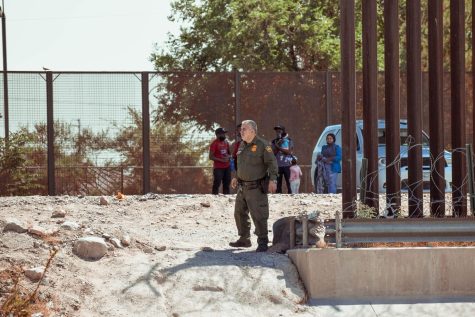
“It was hard going through the jungle, the cold, the hunger but I am grateful, and I thank God that I am here, I want to get a job and establish my life here in the United States,” said Jesús Rafael another migrant coming from Venezuela. “I have been having food and shelter that I need for every day but went through a lot of cold at nighttime which was very frustrating. I thought I was going to die.”
Despite the weighty matter of migration, migrants say those who are migrating to this country lack a voice to express or be heard.
“I’m asking not just El Paso but everyone else in the United States to support and not reject us,” Rafael said. “We have professions that we studied in our countries, and we want to provide for this country and become better people who help the community.”
Joalis Romero said she faced emotional turmoil after fleeing her country, as she went days without food, sleep and clean clothes. She says she and many migrants continue to struggle as they face new challenges inside the U.S.
“The journey from Venezuela to here was hard because we didn’t have resources or anywhere to go eat, we didn’t have any clothes or anywhere to do our necessities, it was very hard,” Romero said. “I have been feeling sad cause I’m away from my family, so it’s been hard this whole situation.”
As migrants continue to come in and out of El Paso, they share gratitude for what they have received when staying in the borderland. However, when it comes to finding a job, many say it has been difficult.
“The shelter here has been well but in reality, we haven’t been able to find jobs, for people to find employment or give us the opportunity to at least get a visa to start working here,” Romero said. “I want to succeed and live a better life; I don’t want to be a burden to the government. I just want to succeed here.”
During this crisis, many groups and other shelters across El Paso are helping these migrants, just like the Opportunity Center. However, with the massive influx many shelters across the region are at capacity.
The Delta Welcome Center, located at 4451 Delta Dr. near the El Paso Coliseum, is one of many other shelters across the city working with migrants and offering shelter. With all the help offered, the facility is now overflowing, and the workers and crew are beginning to feel the weight.
“It’s overwhelming because we don’t have enough space, it is heartbreaking when you get a family coming in and you have to deny shelter because you are at capacity,” said Outreach Coordinator, Nicole Torres. “All of the shelters here are in contact with one another and we are all trying our best to help them, but we are definitely all at capacity.”
In the downtown area, men, women and even children are seeking asylum, near the Sacred Heart Church at 602 S Oregon St., where hundreds of migrants are camping out. The church, which has been housing and feeding migrants since the start of the crisis has also reached capacity, that many migrants are forced to sleep on the sidewalks outside.
Even though the border is being guarded and secured by authorities, reports indicate that more than 100 migrant families cross it every day and on average around a thousand have done so in recent months.
“I do not see things getting better, although they are doing an amazing job at stopping people from coming over the border,” Torres said. “There is still an abundance of people that are still crossing over.”
While housing the migrants has presented itself as a challenge, it has not stopped the Sacred Heart Church and the community from offering services and donations. Having El Paso be at the center of a humanitarian crisis, the church and locals have shown the world how resilient El Paso is by showing kindness and humility to these refugees.
“The community has been more involved in the sense that they have been giving more food, bringing more water and clothes, that is what the community has been doing,” said Director of Religious Formation at Sacred Heart Church, Efren Loya-Gomez. “Our shelter started from zero we didn’t have a lot of stuff and asking the community what we needed, they started moving. That is how El Paso is. Anyone here would help anyone.”
City officials urged President Joe Biden to visit the city of El Paso to see firsthand the humanitarian crisis that is currently ongoing; which resulted in his presence this past Sunday Jan. 8.
Along with President Biden, bi-partisan senators came a day after to see this crisis firsthand. Even New York mayor, Eric Adams; who is dealing with his own version of this crisis, has visited the borderland to see the problem firsthand, to hopefully get federal help for both New York and border cities.
As many migrants are being transported to other cities like New York, Denver, Chicago and Washington D.C., they face the continuation of the problem at the border, especially, uncertainty.
Which is why so many across the country and especially here in El Paso remain uncertain if there will ever be a quick resolution to the long standing problem, or when a solution will come at all, but for now the city of El Paso continues to stay afloat while drowning in a sea of immigration problems.
Erik Acosta is a staff reporter and may be reached at [email protected]u

